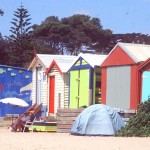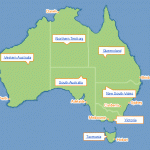I read the following article in the Adviser magazine.
The strong Australian Dollar and the Global Financial Crisis have made Australian homes more affordable.
A popular conversation topic around the dinner table in rented holiday homes across the country over the past month has been whether it makes sense to invest in a beachside property and own your own place for weekends, holidays and maybe longer-term stays in retirement.
Aside from the lifestyle considerations there are questions about what sort of income the property might produce, the tax position and potential for capital gain.
Values in some of the key holiday markets have fallen heavily over the past two years and the experts believe holiday houses are more affordable now than they have been for some time. They also believe that, while there are some medium-term challenges to the sector that might keep prices down for the next year of two, the long term outlook for coastal property is sound.
The head of research at RP Data, Tim Lawless, says people have to be clear about what they can achieve in investment terms when they buy a second house in a holiday location. Lawless says: “If they are looking for a steady rental income stream they will be disappointed. When you are dependent on holiday occupancy it is very difficult to generate a high yield. “The main gain with this sort of investment is capital growth and it is a much better prospect from that point of view. For reasons of lifestyle and prestige there is always going to be demand for places close to the water”.
Two years ago BIS Shrapnel did a survey of coastal property ownership. It found that 8 per cent of Australian households had a second house in a holiday destination. The biggest group of buyers were people in the 50 to 64 age group. These people have paid off their homes or a substantial part of them, have lower child care costs and are starting to think about where they will live when they retire.
Coastal property values have been adversely affected by two factors over the past couple of years – the financial crisis and the poor performance of the Australian tourism industry. As bonuses in the financial services industry and other sectors dried up in 2008 and 2009, many high income earners felt the pinch and decided to offload their holiday houses. The ongoing recession in the tourism industry is one factor that will keep a brake on price growth. The peak in Australian tourism revenue was late in 2007, then overseas and local visitor number started to drop off as the global economy turned down. Numbers stayed down as the strength of the Australian dollar discouraged overseas visitors from coming here and encouraged more Australian to holiday overseas. Lawless says there has been a flow-on from the decline in tourist numbers and revenue to property values in holiday markets. His expectation is recovery on tourism is a couple of years away and this will hold back the coastal market. He said: “An investment in a holiday home must have a five-year time horizon”




